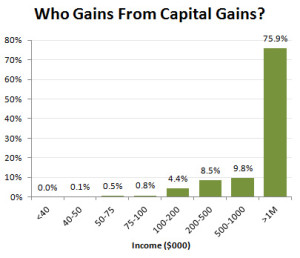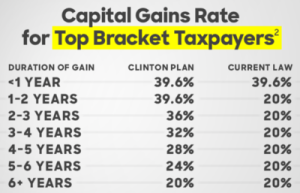What’s a fair way to price auto insurance?
My question begins from a personal financial setback.
My 16 year-old got her driver’s license in August, which I just learned will double our household automobile insurance premiums. We previously paid $678 every six months but will now pay $1,276 every six months.
Yay.
Now I know where I’ll spend the automatic child tax credit that I was so happy about recently.
This new, egregious, pricing is typical for youthful drivers, who are guilty until proven innocent, from the perspective of insurance companies.
Another guilty until proven innocent factor used by auto insurance coverage is credit scores. The worse or thinner your credit, the more you pay for auto insurance. This feels unintuitive. Why should a person with a flawless driving record pay more for insurance if they were late on their credit card bill, or don’t have a credit record? Driving and using credit responsibly are clearly separate skills.
Using credit scoring in insurance products and pricing is an active debate at the federal and state level. New Jersey Senator Cory Booker has proposed banning credit scoring as a factor in auto insurance. Michigan Congresswoman Rashida Tlaib has done the same in the House.
The insurance industry maintains that the historic correlation between lower credit scores and a higher number of claims and a higher dollar value of damage claims justifies the use of credit scoring in pricing.
In June of this year entrepreneur Nestor Hugo Solari moved his startup auto-insurance company Sigo Seguros to Austin and launched a new program in the state, targeting the state’s Spanish-speaking population.
One of Sigo Seguros’ selling points is that they do not consider personal credit scores when underwriting auto insurance. They consider credit-scoring discriminatory, especially against Spanish-speaking Texans. To further appeal to his target audience, the company will not require a traditional state driver’s license either. Customers can provide a foreign driver’s license and still receive coverage from Sigo Seguros, without any surcharge.
The most typical customer for Sigo Seguros, according to Solari, seeks liability-only coverage, and may forgo collision coverage because they drive an older, less-valuable car.
I’ve previously written about this, but from a personal-finance perspective, I favor this flavor of auto insurance. We need solid protection against catastrophic liability. But we don’t need protection against car damage because, for personal finance reasons, people shouldn’t drive valuable cars. Especially, I hasten to add, with a new 16 year-old driver behind the wheel. I decline to insure against damage to my 2009 Hyundai, which has a trade-in value of maybe 2 thousand dollars. At that kind of value, what’s the point of damage insurance? The thing is nearly worthless, on purpose, just the way I like it. So I save a little by declining collision coverage, as do many Sigo Seguros customers.
I asked Solari what his issue was with credit scores. Solari pointed out to me that the Spanish-speaking Texans his company seeks to serve may have thin or no credit files because of recent immigration status or because the community is relatively under-banked, compared to native English-speakers in the state.
I confirmed with my own auto insurance company that they do consider personal credit as one of the factors determining my premiums. Texas insurance rules allow credit scoring as a factor for pricing, in a regulated way, and as long as it’s not the only factor considered. Some states, including California and Massachusetts, have banned personal credit as a factor because of their potentially discriminatory effects.
Other factors also always matter, such as miles driven, car-density as measured by zip code, and of course past driving record.
In theory, what is a fairer method for pricing auto insurance?
Critics of the use of credit scoring argue that observed driving behavior and driving record is what should count most. They have a point as well.
In recent years auto insurance companies have experimented with telematics, which provide data directly to the companies on your particular driving style, based on a mobile phone app that tracks everything from acceleration and hard-braking to late-night driving and texting-while-driving.
Sigo Seguros offers a discount for customers who sign up to its mobile-phone based telematic system, as a better way to measure driving risk.
I was interested to learn this because I had previously enrolled about a year ago in an app that offers me a discount for letting my insurer track my driving experience. My insurance company’s app even reports to me about my sudden braking as well as my phone use while driving. It’s probably tracking overall miles driven as well.
This kind of driving data strikes me as quite fair, since it measures factors that could increase the likelihood of auto accidents which credit scores, for example, do not. This is the ultimate goal – fairness in auto insurance – based on observed risky behaviors. And fairness is good.
The downside of telematics is that Big Brother – in the form of my auto insurance company – is totally watching me drive around everywhere.
This makes me paranoid about my ability to get away with doing crimes in the future, which is a real negative. On the plus side, I get 3 percent annual savings on my auto insurance premiums!
We are now paying through the nose because of my teen driver. Eventually I will need to rob banks just to pay for the auto insurance, but the auto insurance telematics will increase my likelihood of getting caught for this behavior. A classic Catch-22.1
A version of this post ran in the San Antonio Express News.
Please see related stories:
Yup, My 16 Year-old Got a Credit Card (Need to link here)
Auto Insurance and My Personal Finance Theories
Post read (85) times.
- Speaking of Big Brother watching, and as a total aside, I have really enjoyed the idea that Bill Gates can track my every move, ever since I got the Pfizer vaccine against COVID. You know what’s nuts about that worry in particular? We all carry smartphones everywhere! That is the actual tracking device recording all of our movements, people! It’s not the vaccine. Please, for the love of McKenzie Scott and all that is beautiful in this world, get vaccinated if you haven’t already. ↩








